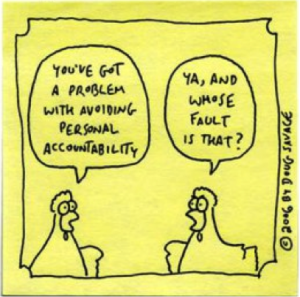It’s that time of year again: a fresh new year and a fresh approach. Everything will be different this year. Except one thing, absolutely nothing changes from December 31st to January 1st except the calendar. So what will really make the difference? My approach! As a classroom teacher, I hated planning. I was queen of off-the-cuff teaching. Lucky for my students, I came up with my most brilliant ideas on the fly, and this type of teaching did wonders to engage my students. As I consider my professional goals outside the classroom, I understand the benefit of long-term planning, setting goals, and really measuring key results.
To effectively plan for the New Year, I’m planning to taking a close look at my failures from the past years. Here are a few things I am going to do differently as I plan for my new year:
Past Mistake #1 Anti-goal setting:
 Guilty. Out of sheer annoyance and maybe a little laziness, I have outright refused to set goals for some years—both personal and professional. Whether you call them resolutions, goals, or whatever, it’s so annoying because everyone is doing it. But perhaps everyone is doing it because it’s important. So this year, I resolve to create goals no matter how cliché it may be. The way to set myself apart may be to actually reach my goals. My professional goals will be few, short, and specific.
Guilty. Out of sheer annoyance and maybe a little laziness, I have outright refused to set goals for some years—both personal and professional. Whether you call them resolutions, goals, or whatever, it’s so annoying because everyone is doing it. But perhaps everyone is doing it because it’s important. So this year, I resolve to create goals no matter how cliché it may be. The way to set myself apart may be to actually reach my goals. My professional goals will be few, short, and specific.
Past Mistake #2 Overkill–too many goals, too many metrics:
 Talk about the case of drastic ends of the spectrum. Sandwiched in between years of resolution strike, I had one year of absolute goal overdrive. My professional goals read like a top notch project plan. Only thing missing was the budget (there was none). I found that I could not keep up with my own unrealistic tracking system. Then the plan became just another pretty fixture on my wall of dysfunction. This year, I’m planning to set realistic benchmarks around naturally occurring events that make it easy to track.
Talk about the case of drastic ends of the spectrum. Sandwiched in between years of resolution strike, I had one year of absolute goal overdrive. My professional goals read like a top notch project plan. Only thing missing was the budget (there was none). I found that I could not keep up with my own unrealistic tracking system. Then the plan became just another pretty fixture on my wall of dysfunction. This year, I’m planning to set realistic benchmarks around naturally occurring events that make it easy to track.
Past Mistake #3 Limited accountability:
 My goals are my business, right? That is what I’ve thought in previous years. I held myself accountable, and then promptly let myself down. And you know what? I was ok with that. In my work life I can fairly easily build in accountability because virtually everything I do professionally is with someone or for someone. The trickier part about giving myself meaningful accountability will be making the necessary adjustments when I do not hit the mark. This year, when a benchmark goes unmet and my partners hold me accountable, I will focus on what adjustments to make in order to meet the missed deadline and to prevent other slippage in the future.
My goals are my business, right? That is what I’ve thought in previous years. I held myself accountable, and then promptly let myself down. And you know what? I was ok with that. In my work life I can fairly easily build in accountability because virtually everything I do professionally is with someone or for someone. The trickier part about giving myself meaningful accountability will be making the necessary adjustments when I do not hit the mark. This year, when a benchmark goes unmet and my partners hold me accountable, I will focus on what adjustments to make in order to meet the missed deadline and to prevent other slippage in the future.

Leave a Reply
The comments are closed.